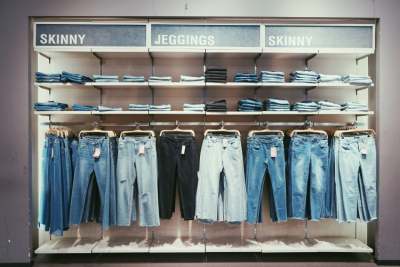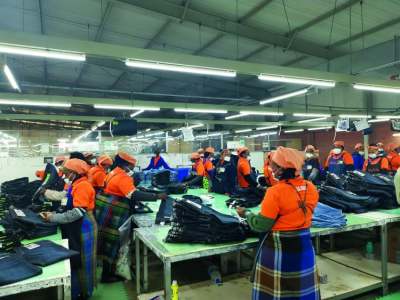Finding an ethical and sustainable pair of jeans
This guide to sustainable jeans rates over 50 brands, from some of the biggest jeans names like Levi and Diesel to high street staples like H&M and Primark; from new online ultra-fast fashion giants like Temu and Shein to small specialist independent brands like BAM and Lucy and Yak. Plus we've included some secondhand retailers as well.
We look at the materials and chemicals used to make jeans, review options for recycling and buying secondhand jeans, as well workers' rights, including looking at a powerful workers' rights model implemented by workers in Levi's supply chain. We also look at price and quality of jeans.
With many of the brands failing to score more than 25 (out of 100), and some scoring way over 75, the difference between the more ethical and less ethical brands of jeans is noticeable.
Which are the biggest brands of jeans?
The most commonly owned jeans brand in the UK is Primark, followed in order by M&S, Next, Levi’s, H&M, Zara, Diesel, Wrangler, Calvin Klein, and Gap.






